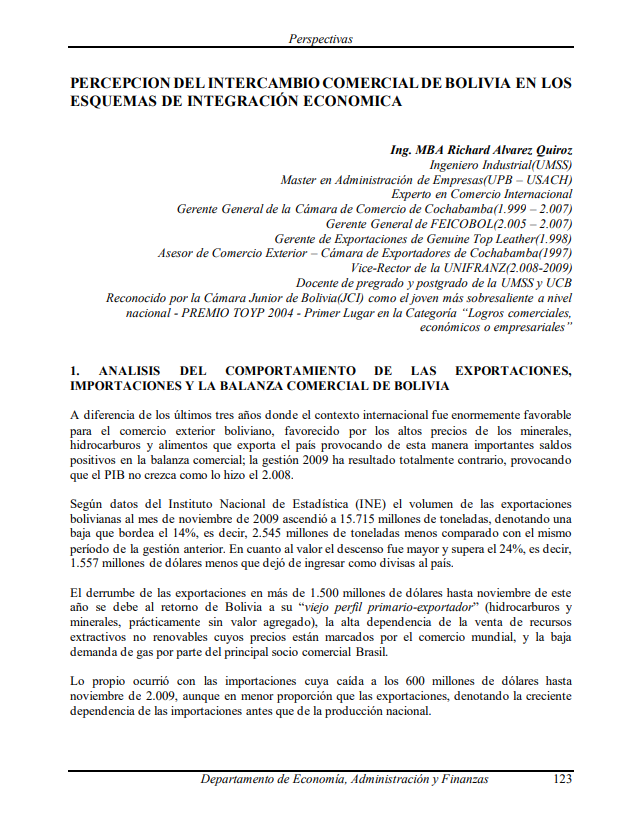Perception of Bolivia’s trade exchange in economic integration schemes
DOI:
https://doi.org/10.35319/24j82298Keywords:
Exports, Imports, Global financial crisisAbstract
Unlike previous years with a favorable international context, Bolivia faced a significant drop in exports and imports in 2009, impacting GDP growth. Exports fell by 14% in volume and 24% in value, mainly due to high dependence on raw natural resources without added value, low gas demand from Brazil, and the global financial crisis. Export bans and loss of preferential markets also affected results. Consequently, 2009 was a negative year for Bolivia's foreign trade, and 2010 is expected to perform similarly or worse unless there is a strong global economic recovery and new market openings.
Downloads
References
Asociación Latinoamericana de Integración(ALADI)
Instituto Boliviano de Comercio Exterior(IBCE)
Instituto Nacional de Estadística(INE)
Texto del Mgr. Richard Alvarez Quiroz utilizado en postgrado: "Tratados y Convenios Internacionales firmados por Bolivia"(2.009)

Downloads
Published
Issue
Section
License
Copyright (c) 2010 Revista Perspectivas

This work is licensed under a Creative Commons Attribution-NonCommercial-ShareAlike 4.0 International License.
La Revista Perspectivas de la Universidad Católica Boliviana, es una revista de acceso abierto, por lo tanto, es de libre acceso en su integridad. Está permitida su lectura, búsqueda, descarga, distribución y reutilización legal en cualquier tipo de soporte únicamente para fines no comerciales, siempre y cuando la obra sea debidamente citada.




